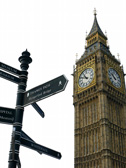Privacy and Surveillance: Monitoring humans and monitoring human rights?
People Power for the Third Millennium: Technology, Democracy & Human Rights Symposium Series
Monday 12th May 2008
3-5pm, House of Lords, Palace of Westminster
 A panel of experts on privacy and surveillance addressed a group of parliamentarians, academics and business representatives at a half-day symposium in the Palace of Westminster on 12th May 2008. Lord Neill of Bladen hosted the BioCentre’s third symposium from their successful 2008 series, People Power for the Third Millennium: Technology, Democracy and Human Rights. The title of this symposium was Privacy and Surveillance: Monitoring human and monitoring human rights.
A panel of experts on privacy and surveillance addressed a group of parliamentarians, academics and business representatives at a half-day symposium in the Palace of Westminster on 12th May 2008. Lord Neill of Bladen hosted the BioCentre’s third symposium from their successful 2008 series, People Power for the Third Millennium: Technology, Democracy and Human Rights. The title of this symposium was Privacy and Surveillance: Monitoring human and monitoring human rights.
The first speaker of the afternoon was Professor Nigel Gilbert from the University of Surrey and Chair of the Royal Academy of Engineering’s group on privacy and surveillance. Prof Gilbert gave a wide-ranging presentation of the benefits and costs of modern privacy and surveillance. He began by outlining three categories of technology – connection technologies, disconnection technologies and processing technologies. He argued that the reason that issues surrounding privacy and surveillance had attracted so much attention in recent years is because technology has allowed more information to be collected and more to be done with that data when it has been collected; there is nothing new about collecting information but it has never before been so easy to search through and process that data.
This new ability allows for many new benefits such as more efficient government departments through data sharing; however, it also leads to many new dangers. New dangers include identity theft and a reduction in trust due to increased surveillance. Prof Gilbert suggested that a useful way of implementing these technologies would be to distinguish when we want authorisation from when we want identification. Many privacy and surveillance technologies are used to identify individuals when we really only need to check if they are authorised to carry out a certain action.
The next speaker was Simon Holloway from Bloor Research. He spoke as a recognised European expert on Radio Frequency Identification (RFID). Mr Holloway gave a very wide-ranging and compelling talk about the different uses for RFID technology. He gave many examples of how safety can be improved on ships, oil refineries and other high risk areas. Mr Holloway spoke about the importance of using this technology because it can help to regulate drugs, and to help vulnerable people such as those with Alzheimer’s to gain some independence.
The final presentation was a joint presentation by Professor Karen Yueng and Professor Roger Brownsword from the School of Law at King’s College London. Prof Yeung began by describing some news stories involving privacy and surveillance, for example, the introduction of a database that keeps a record of employees who have been accused of wrongdoing for potential employers to consult. Prof Yeung claimed that many of these new technologies do not allow us to do anything that we were unable to do previously; it simply makes it quicker and easier. However, Prof Yeung pointed out that although it is only the method that has changed this can lead to quite drastic changes in the practice and attitudes to privacy and surveillance.
Prof Brownsword followed on from this by discussing the law surrounding issues of privacy and surveillance. He highlighted three strands that exist within the law: privacy, confidentiality and data protection. However these three strands are not clearly defined in law and failure to distinguish between them can lead to much confusion. Prof Brownsword also raised his concern about how up to date many of these laws are because many of them were laid down before modern technology was widely used. He advocated more effort being made in order to clarify these three strands and to in bringing the law up to date.
Following this Lord Neill chaired a question and answer session involving all four speakers giving those present the opportunity to engage with the speakers on the issues that were raised in the course of the afternoon.
The next symposium in this series is Arts & Technology: The Role of the Arts in Democratic Policy Making and will be held at the National Theatre on 14th October 2008.
- A full PDF report of the symposium will be available for download shortly from this page.




